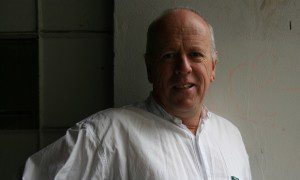Censorship fuels the censor within (Banned Books Week)
Two things are on my mind today. First, real-deal censorship, like the total ban on Ted Dawe’s award-winning YA novel Into the River in his home country of New Zealand. Second, the softer, but possibly more damaging censorship that writers may inflict on their own work, especially when stories like Dawe’s fill the imagination with potential opposition. There’s never a bad time to think about these issues, but they’re especially apropos because September 27-October 3, 2015 is Banned Books Week, and this year’s theme is YA literature.
Although I was aware of current YA book challenges and the banning of many works in the past, I had no idea that a nation like New Zealand had such a thing as a “chief censor” whose job is to direct a bureaucracy focused on rating media and, in cases, banning the sale or distribution of books like Ted Dawe’s Into the River. I haven’t read the book, but from what he talks about here, it sounds like we’re in pretty familiar, well-trod YA territory.
It’s worth noting what “banned” means in New Zealand. We’re not just talking about the book being pulled from public library shelves (although that, too, would be bad). In New Zealand, it is illegal to exhibit, buy, sell, or distribute Into the River or any other book “under restriction.” It may also be illegal to purchase electronic copies of the book.
This situation is intolerable on many levels, but what I’m most interested in–and concerned by–is what the anticipation of censorship means for how writers approach their work. I reckon that New Zealand suffers a paucity of the kind of writing we get here from Carrie Mesrobian, whose frank, sensitive explorations of adolescent sexuality are as important as they are controversial. Carrie’s books Sex and Violence and Perfectly Good White Boy are what I consider top-shelf, and I’m sure her latest, Cut Both Ways, will join them there. (By the way, I mean “top-shelf” as in AWESOME, not as in “keep it out of the reach of the littles.”)
A while back, Carrie had this to say about self-censorship in the context of YA engagements with sex and sexuality:
I think there’s also a form of censorship that we don’t see. This occurs on the part of writers fearing such blowback – is this too graphic? is that okay for kids to read? – and so when it comes to writing sex or anything else controversial, they step back. The scene fades to black. The scene pivots and becomes a summary. The scene gets edited out. The end result is the reader doesn’t get to see that writer’s honest view of the world.
As a writer of YA fiction, this kind of pre-censorship is just as troubling to me as more classic forms of censorship and book-banning. Not only does it underestimate our audience’s capacity and disrespect their ability to select material that has meaning for them, but it also encourages writers to create a kind of pre-chewed, palatable and safe menu for readers, instead of offering up what might be an original view on a difficult or complicated topic. It makes decisions for readers we’ve never met. It contracts the limitless world of literature and all its ways of providing comfort, escape, meaning and empathy.
Amen to all of that. Read the rest of Carrie’s compelling defense of “graphic” scenes in YA fiction here. And while you’re at it, also read Ted Dawe’s description of “uncensoring” his students’ personal writing to open up the possibility of “fearless honesty,” authenticity, solidarity, and visibility for their experiences.
For the most part, when I write, I train my attention on the story I’m telling and the world that it unfolds in. I try to understand that world by writing my way into imagined hearts and minds. That means writing the scenes that belong in my narrative even when it entails going places I’d rather not. As I talk about more here, this uncensored writing process is incredibly difficult to achieve even in the States. The work would be made much harder if I were trying to do it in a country with such a vexed relationship with writing that engages with reality in all its aspects. A quick poke around the New Zealand censorship webpage suggests to me that the office’s vision of “wise choices” maps distressingly well onto the idea of “clean YA” that I reject for my own writing.
Even as I do my best not to think about the hypothetical judgments of hypothetical PTA members who might hypothetically read and condemn (or condemn without reading) my books, I’m more than a little worried about censorship in New Zealand.
So, here is what I’m up to: (1) checking out Into the River, (2) writing in support of restored access to the book in New Zealand, and (3) fearlessly writing my next novel. I hope Ted Dawes is working on that last bit, too.






